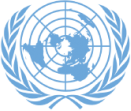Statement by H.E. Mr. Amrit Bahadur Rai,
Permanent Representative of Nepal the United Nations,
at the 12th Conference of States Parties to the Convention on the Rights of Persons with Disabilities
Agenda Item: 5 a Matters related to the implementation of the Convention
(New York, 12 June 2019)
Mr. Chair,
At the outset, let me extend my sincere congratulations to you and other members on your respective election to the Bureau of the 12th Conference of the State Parties of the CRPD. I wish you all the best for the successful completion of the session and assure my delegation’s full support to you and the Bureau members.
Mr. Chair,
The Convention on the Rights of Persons with Disabilities is the most comprehensive human rights treaty that we have today to guide us to change our attitudes and approaches towards the persons with disabilities.
Nepal is fully committed to the rights of the persons with disabilities. The Constitution of Nepal 2015 guarantees the rights of the citizens with disabilities with special provisions on education, social protection, and inclusion. The Government has enacted the Rights of Persons with Disabilities Act 2017 which is guided by the rights-based approach and formulated in line with the Convention.
Mr. Chair,
The Government of Nepal has taken all promotive, preventive, protective, and transformative measures toensure rights and provide assistance to the persons with disabilities so that they are able to lead a dignified life, participate in social activities and enjoy the rights, and freedom as other fellow citizens in the country.
Policies and programmes have been formulated and implemented to ensure rights-based and non-discriminatory approach to the persons with disabilities.The programme is devised to ensure the right to education for children with disabilities by improving access to school. Rehabilitation programme is launched to boost their morale and self- respect, and enhance skills and capacities. The social security scheme already includes persons with disabilities.
The Government has categorized various forms of disabilities on the basis of severity of disability. Eligible persons with disabilities are granted allowances; free education up to university; scholarships; free healthcare and discounted medicines; assistive materials (such as prosthetics, hearing devices, wheelchairs, etc.); orphanages, rehabilitation centres and hospitals for individuals with disabilities; quotas in public and private job openings; discounts on land and air transportation, among others.
Though we have come a long way, there is still much to be done to make these services and facilities evenly accessible to every person in need, living both in urban and rural areas. Our goal remains to reach out to the furthest behind, help them to unleash their potentials, and create an environment to live a life free of stigmatization.
Mr. Chair,
In today’s digital age, access to technology, digitization and information communications can empower the persons with disabilities by overcoming physical, social and other barriers. Technologies can help access to health and education and equip them with skills to explore employment opportunities.
A note by the Secretariat on ‘Technology, digitalization and information and communications technology for the empowerment and inclusion of persons with disabilities’ has rightly mentioned that persons with disabilities with science, technology, engineering and mathematics (STEM) skills will have the opportunity not only to find and create jobs but also to reduce poverty and inequality and promote inclusion.
Mr. Chair,
I would also like to share the new concept ‘accessible tourism’ being introduced in Nepal. Nepal Tourism Board and the National Federation of the Disabled have jointly inaugurated Nepal’s first ever accessible trail in 2018 in Pokhara, Nepal. We hope that such initiative can raise awareness among local people about the importance ofdisabled-friendly infrastructure both in private and public spaces.
Finally, I would like to reiterate Nepal’s commitment in building inclusive society, leaving no one behind and reaching out to the furthest behind. In doing so, Nepal expresses its readiness to join hands with the international community.
I thank you.


